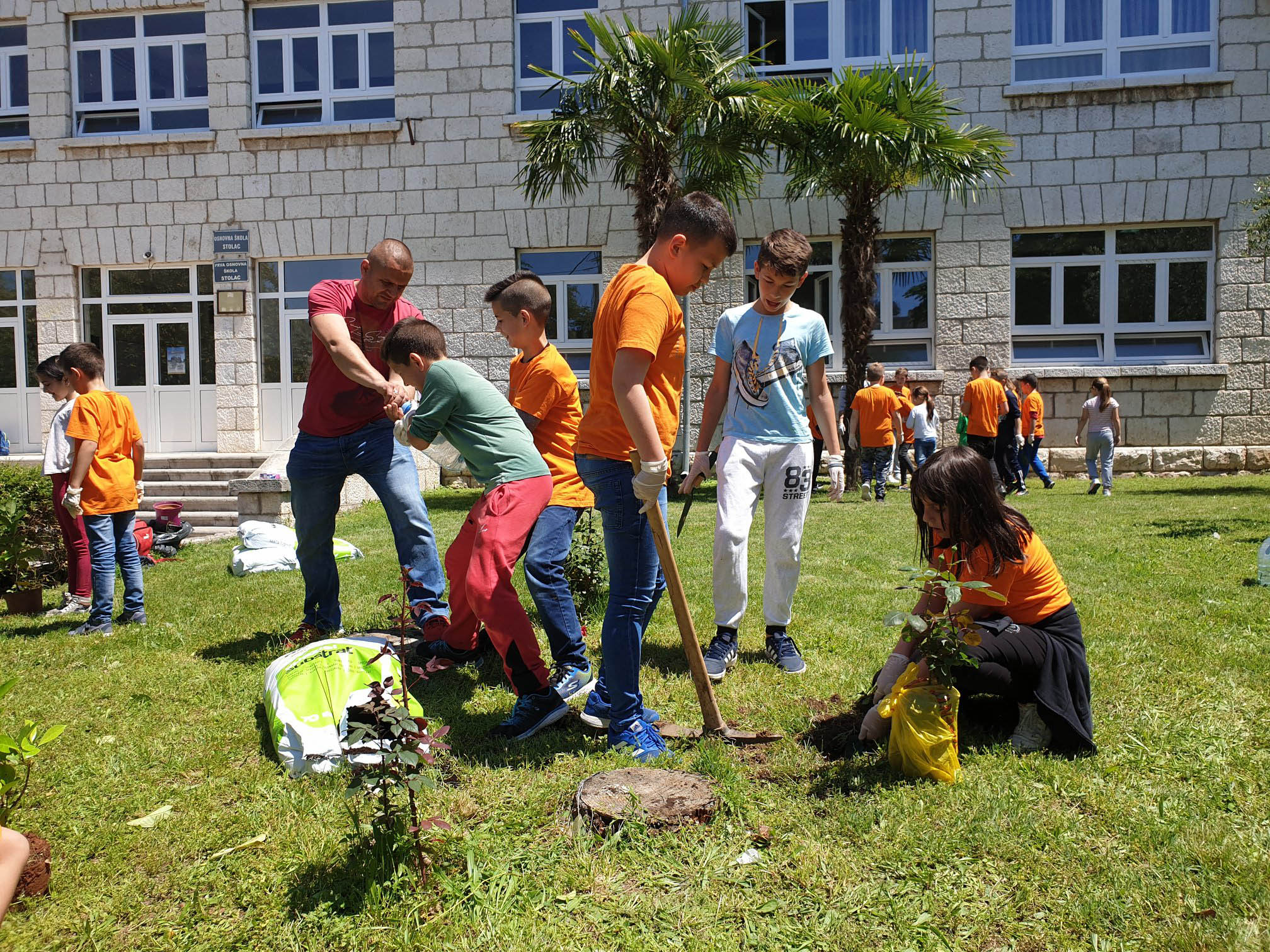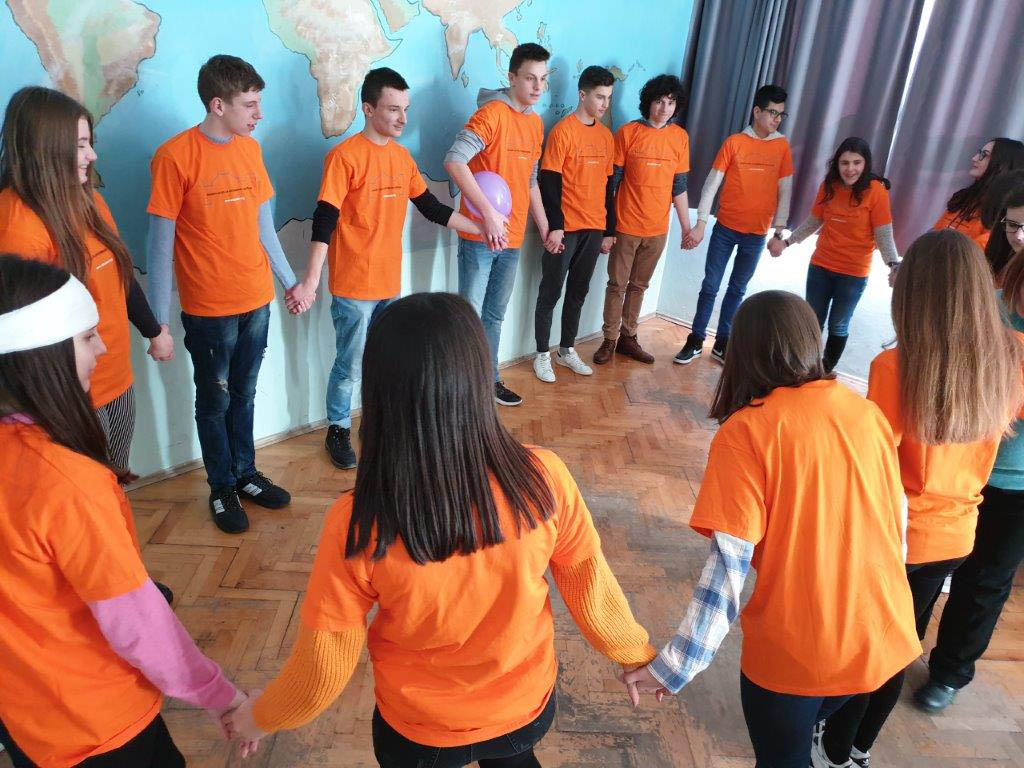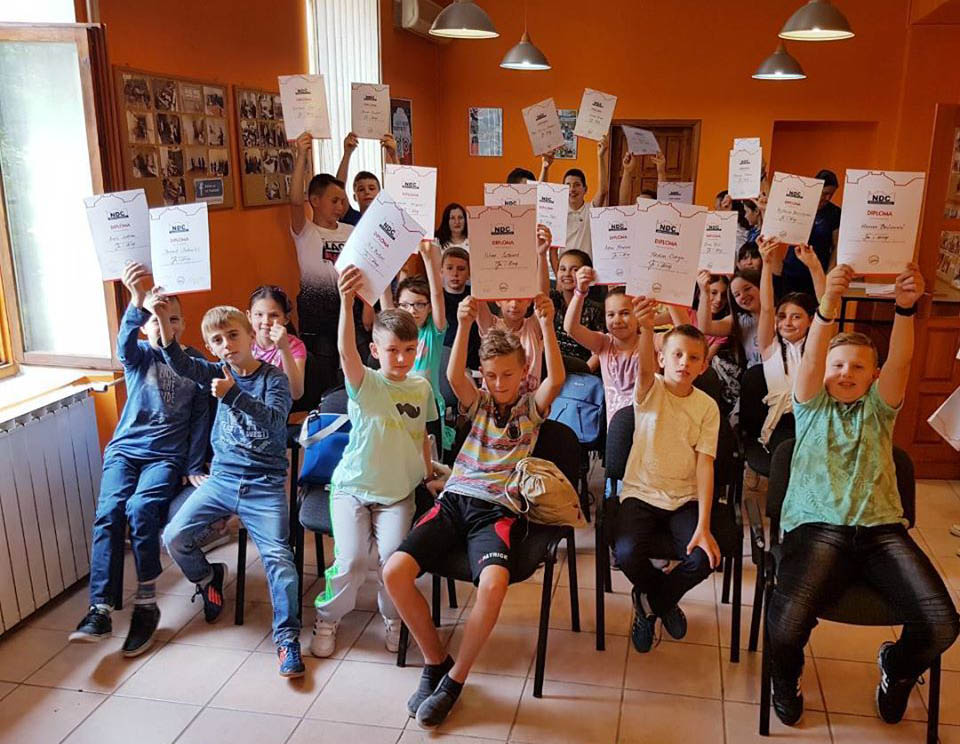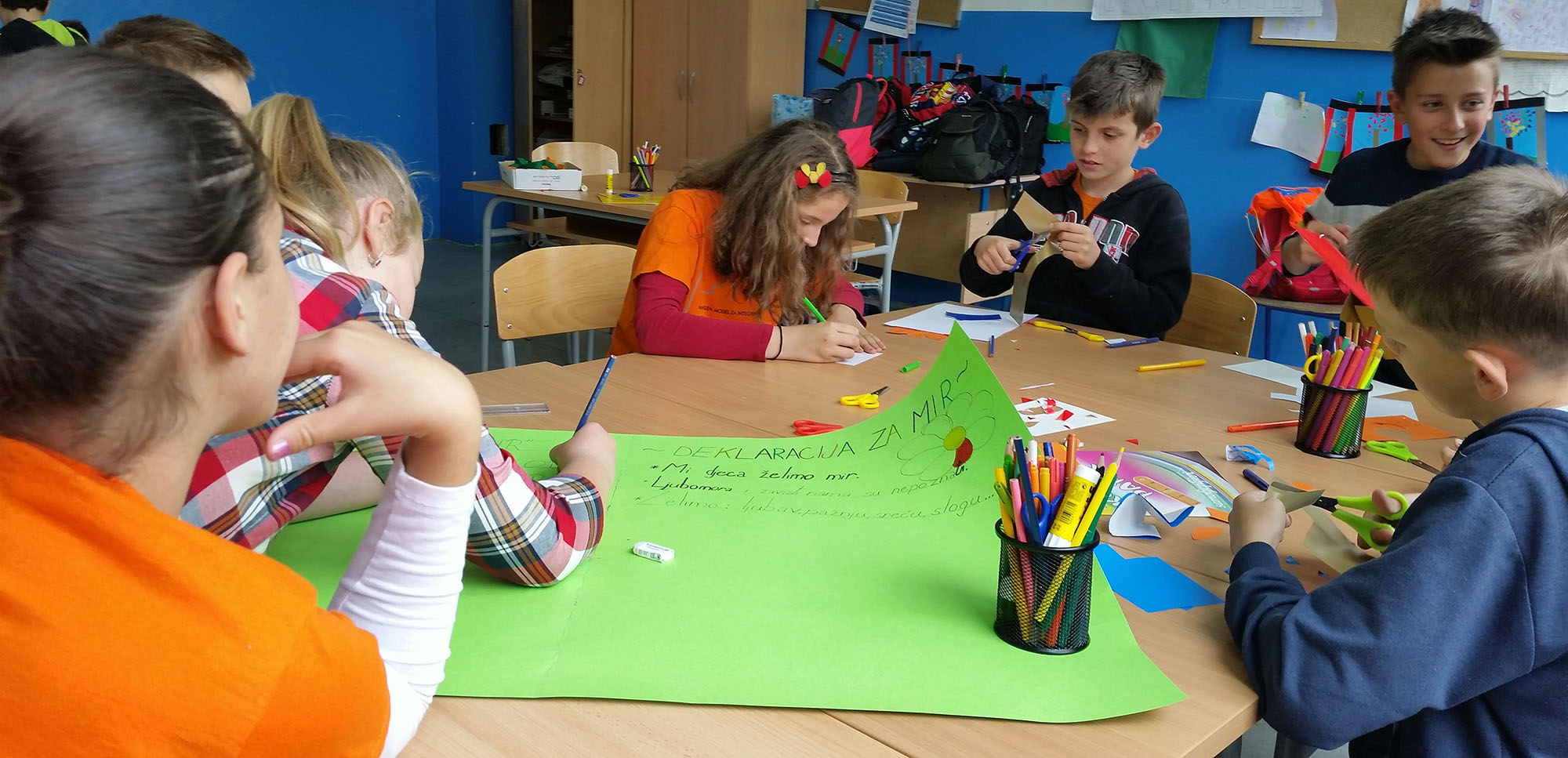What is the Nansen Model of Education?
The Nansen Model of Education (NME) is a program created to address the principle of “two schools under one roof”, where teaching is organized in the way that children are divided on an ethnic basis.
The Nansen model combines joint classes, multi-ethnic joint grassroots initiatives and strong partnerships with broader municipal community actors, especially with parents. Since its launch in 2007 by NDC Skopje after 2 years of careful development, the model has been successfully implemented in segregated communities in North Macedonia and demonstrated excellent results.
Since 2015, NDC Mostar has tailored the model to the Herzegovina context and is implementing it in 10 schools in Mostar, Stolac and Prozor-Rama.
The objective of this long-term program is to reduce cultural barriers, as well as the stereotypes and prejudice linked to the students’ different ethnic, religious and cultural backgrounds with the aim of fostering increased integration and socialization.
How it works in practice
The Nansen Model of Education is an integral part of the participating schools. It is based on three main components:
- Regular integrated extracurricular activities for primary and secondary school students
NME addresses the lack of mutual activities between primary and secondary school students by implementing joint extracurricular activities between students from different ethnic communities that enable successful integration and socialization.
- Capacity building trainings and workshops for teachers
The program is geared towards building the competences of education stakeholders on multicultural education, inclusion and an anti-bias approach to education. This is done through a structured set of activities (such as workshops and trainings) and through developing local schools’ policies and practices that increase the level of integration and reduce ethnic distance between communities.
- Program for cooperation with parents
NME creates partnerships with parents and involves them in the NDC Mostar school activities. Cooperation programs with parents are carried out through educational and creative workshops, courses and consultations to strengthen cooperation and relationships between parents.
Results
By supporting integrated education and systems against segregation in schools, the program reinforces grassroots engagement and encourages local civil society initiatives seeking to foster ethnic reconciliation, tolerance and appreciation for diversity in the next generations.
All NME program activities are carefully planned and structured to address the issues of the educational system and to offer new approaches that increase inter-ethnic integration and tolerance and promote cooperative relationships between schools and the local community while establishing new school policies and practices. NDC Mostar has been able to observe the following results in participating schools:
- Increased interethnic and inter-religious integration and prevention of violence and school division
- Reduced stereotypes and prejudice related to ethnic, cultural and religious backgrounds
- Improved students’ skills on communication; critical thinking and problem solving, negotiation and peaceful conflict resolution; respect for diversity and intercultural understanding
- Developed education workers’ competences on mediation, conflict prevention, multiculturalism, intercultural competence, inclusion and anti-bias approach to education
- Developed local schools’ policies and practices that will increase the level of integration between groups from different ethnic and religious communities. For example, in Mostar, Stolac and Prozor-Rama, the programs set up by NDC have now been taken up and are an integral part of the extra-curricular activities of the participating schools.
- Eight Nansen Classrooms opened in partner schools
that NME implemented
trained and involved in NME
regularly attend NME annually
established





